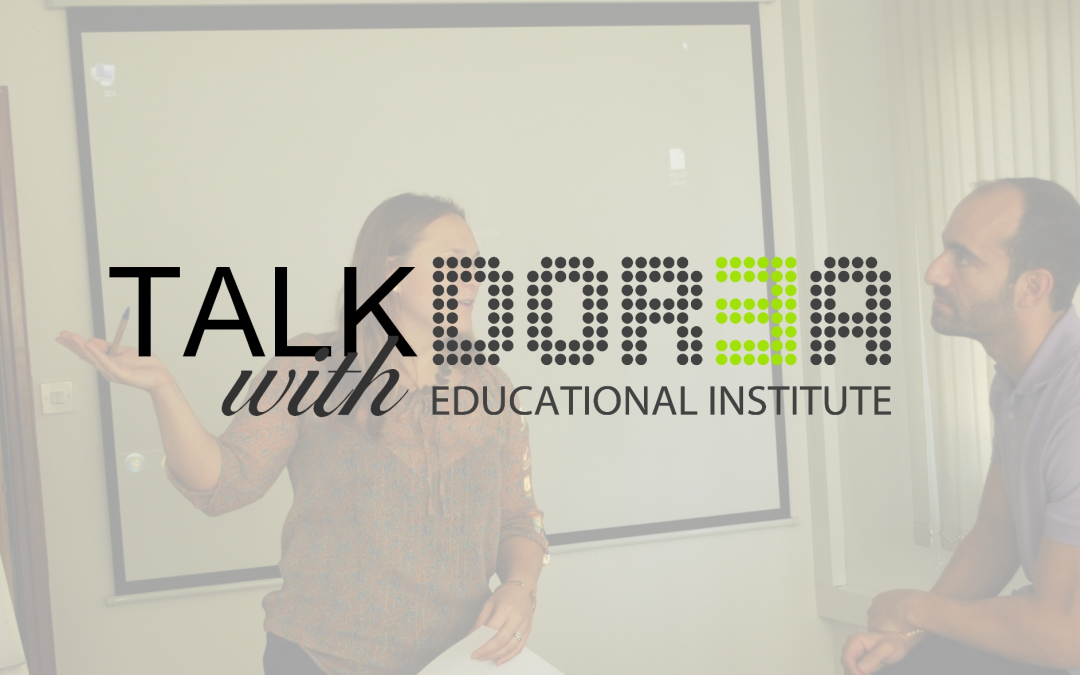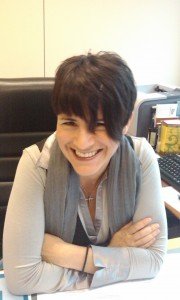Act as a co-operator not as an expert
Carola is a social worker, who holds trainings in systemic therapy, psychotherapy, play therapy, and life coaching. She works with children therapeutically on public filed, not on corporate or business field. Her job is to find solution on the public level within the whole community when someone is struggling with issues. As a trainer during the course titled “Classroom Management: A Solution Focused Approach” – organized by DOREA – she helps educators to help solving problems within the class with different viewpoints.
If you think about the Erasmus+ Mobility Program which three words come to your mind first?
Experience, dynamic, learning.
Which are the main positive effects of the mobility for individuals (for staff)?
This mobility is about exchange of experiences between people from different countries. Educators can talk about similar methods with different aspect when they come together for a training. They can share previous experiences with each other while they are getting closer and closer. After the training when they go back to their countries it can has a powerful effect on their life – both professionally and personally. I believe this is the main point of mobility – to gain experience during the trainings with lot of techniques, to get the culture in a deeper sense; especially nowadays when everything is hooked up and connected.
Has this exchange of knowledge long term effect? Do you use the knowledge gained after the mobility?
In my opinion every experience changes the person. In other words, if you learn something then you aren’t the same person with the same mentality as before gaining the new information; it becomes part of you.
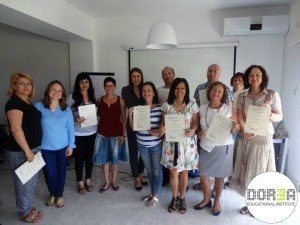 How can we examine or measure it during the courses and after the courses?
How can we examine or measure it during the courses and after the courses?
When I hold the courses; especially here in DOREA where the participants are from different countries, communities, cultures, I give them the opportunity to talk with each other, to strengthen each other by exchanging ideas. I believe – especially when we have a group which is bigger – this exchange is truly rich. During debates they get a lot experience as well. At the end of the courses there is an evaluation form where they can give a feedback about what they have liked, what kind of the exchanges, experiences have they gotten from each other. I personally rather try to get the feedback by paying attention for their conversations within the group, because usually these conversations really show what they have already taken into.
Your field is related to class management. Why do you think it is a ‘worth-to-discuss’ topic nowadays?
I have 15 years of experience working with children and one part of my work is cooperating with schools as well. Counsellors, teachers – when they have difficulties (I don’t like to call it a problem) in the classroom with a child – can contact me to discuss how to solve it. I have to show them that solving only one child’s problem is not enough in most of the cases. Therefore, we need to find a different way for classroom management together. This is the reason why I believe in this course (Classroom Management: A Solution Focused Approach) which is based on a solution focus approach managing the whole classroom together, as the main point of it is not to isolate the problem. I would like to share this knowledge to help teachers and society with the proper education of the future generation.
Who would you recommend this course for and what are the benefits of it?
This course is for teachers, school counsellors, social workers and psychologist as well. The course gives them techniques which can be used in the classrooms; at the end of the course this experience will change the way how they look at the difficulties. Thus, the different viewpoint of the methods is the greatest advantage that will allow participants to go back to the classroom and apply the techniques learned. My experience is that teachers freak out when they have any children with difficulties – they do not sit on the chairs, they do what they want, they shout and laugh during the lessons, etc. – most of the teachers cannot handle these situations without the knowledge of this course. During this course I will show participants an approach which they can use to handle these situations. It is beneficial for both sides – for students and for teachers– as I show to the teachers how to use it together with the specific child and with the whole classroom as well. Furthermore, if teachers share their knowledge with parents than they can spread this solution focused approach to the houses as well.
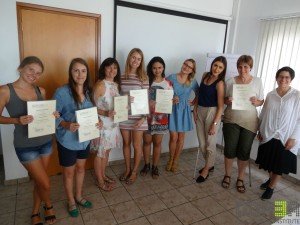 What kind of sources do you use in the class management course? How do you build up your course/lecture?
What kind of sources do you use in the class management course? How do you build up your course/lecture?
Of course I have many books; I use a lot of materials. This course is following primarily a manual which has been used mainly in the UK, US and there are researches that show positive results. A part of this philosophy developed in the 90’s as a free solution of therapy. As the next step, we learn how to combine these different viewpoints. Thus with these pairs the participants can expand their knowledge by stick the approach and the techniques together; they get an insight about how to use solution forms, ideas. Lastly, we specialize how to use this knowledge in the classroom.
Why people should take part at your training course organized by DOREA?
Generally, teachers chose their profession because they would like to help developing a child life, to make a positive influence on his/her future. To reach this aim you need to create an environment, a positive relationship between the child and the teacher which connect and accomplish the required/wishful/desired future. In my point of view, teachers can carry out their job only if they like what they are doing, if they are respected. On the other hand, if something is difficult to manage in the classroom – in every classroom you can find children with a different way of being –they try to find an alternative way to handle that. Nowadays what teachers generally do – I don’t contend if it is professional or not – is panic .They take the child out of the classroom to the counsellors, to a psychologist, etc. In this case they isolate the child from the group where the problem exists. With the approach and techniques which I show during the course educators can learn how to solve the problem within the classroom; not to isolate the child, but work together with the other children. This way educators are able to find a different way which strengthens the child and the whole classroom as well.
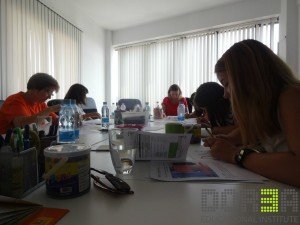 Your vision is to create a therapeutic community especially for children and their families where relationships can be healed and rebuild. Could you tell us more about this vision? What do you think it is important to create a community like this?
Your vision is to create a therapeutic community especially for children and their families where relationships can be healed and rebuild. Could you tell us more about this vision? What do you think it is important to create a community like this?
Behind this expression that relationship can be healed and rebuild the idea is the following: the core and most powerful meaning of relationship is the communication between each other, and when difficulties arise in a family, in a community, we need to know that a bad way of communication doesn’t help, or the lack of communication is even more harmful. I believe that a break in the communication cause pain and difficulties. Nowadays we can see a lot of pain in our world, people divorce; they cannot stand each other, there is child abuse, power abuse, etc. New experiences, new ideas can heal relationships. Using different techniques and approaches we can heal them, but for that we need to do it together – the whole family or the whole community. Communication is the key; we need to know communicate with the other, how to form words. It is also important to accept the others viewpoint, you should take out your glasses and take the other persons’ glasses to see how they communicate and why.
How is it going on? Have already you reached any results?
Because of my work I have a lot of families to work with; I know a lot of children. Recently I have worked with 17 cases with families and children, and most of them are closed as we have worked a lot to heal their relationships and they have learned how to handle difficulties in the future; we don’t need to continue the cooperation. I meet with the families in their own home, in an environment where they feel safe. Of course, I have to respect their personal space. In addition, I do not take the power of them. In this way they are relaxed during the conversations and you can go further and further to see their relationships and the issues. The main point is to go there as a co-operator and not as an expert, you need to show them techniques and examples, so they were able to focus on what they can do, how they can improve.
Prepared and edited by Flóra Fierpasz
